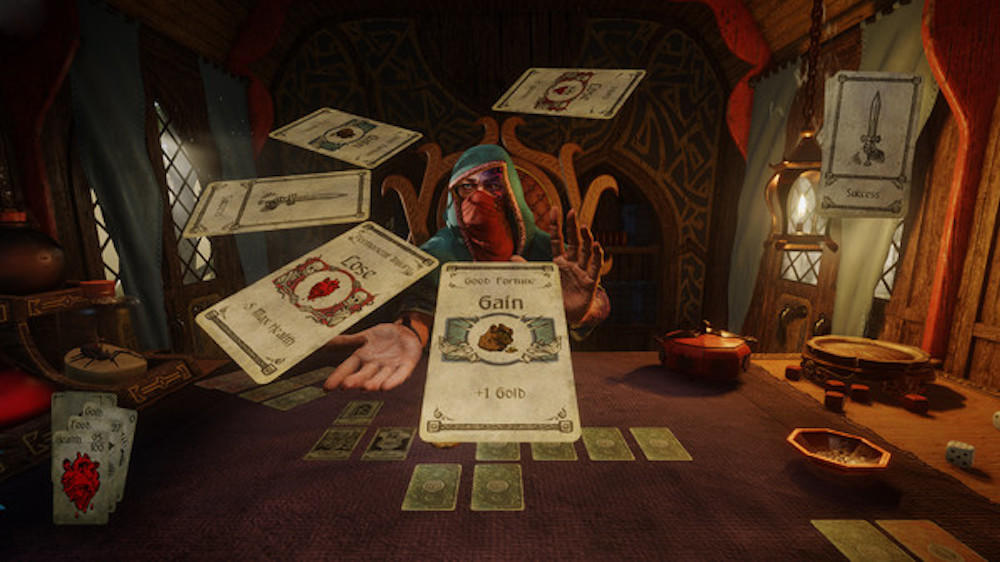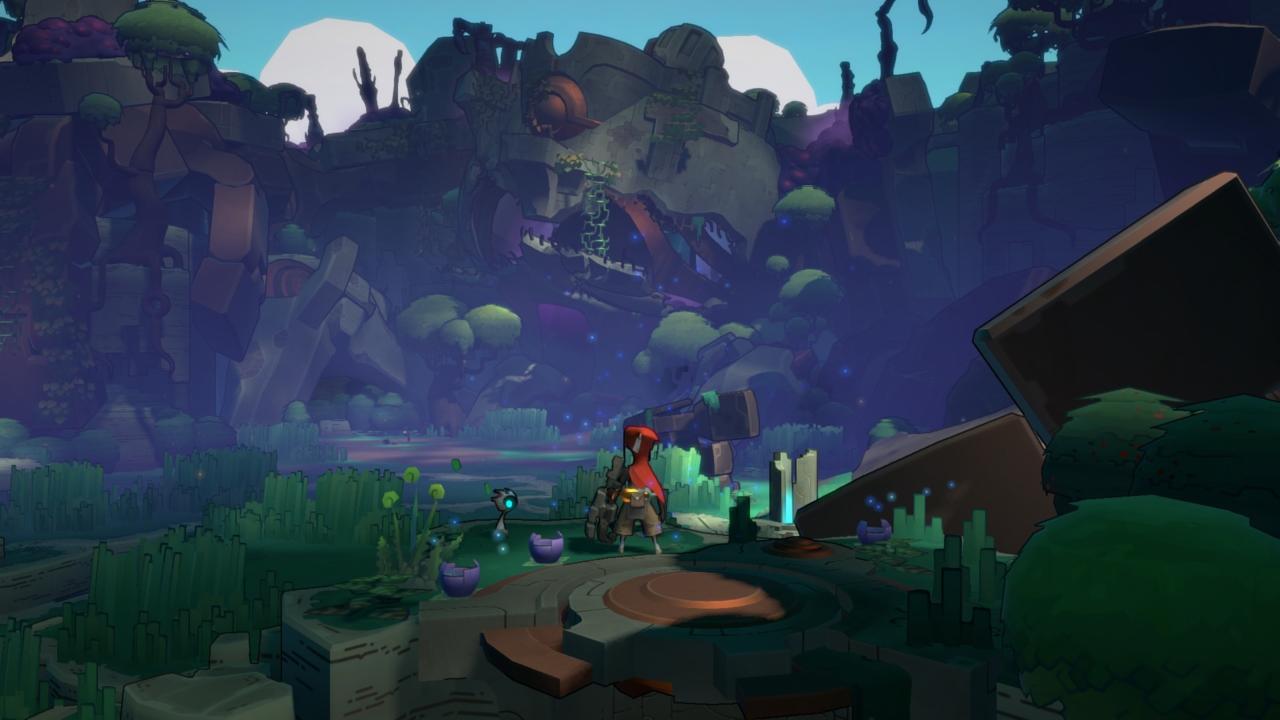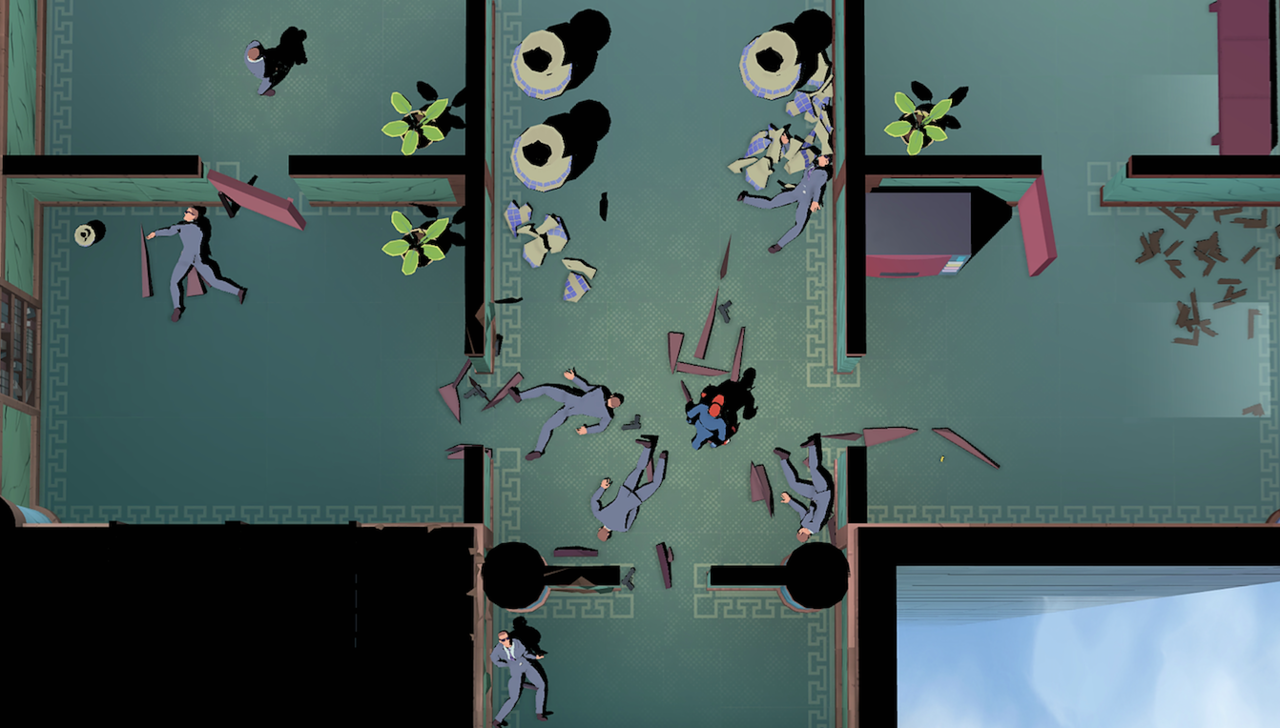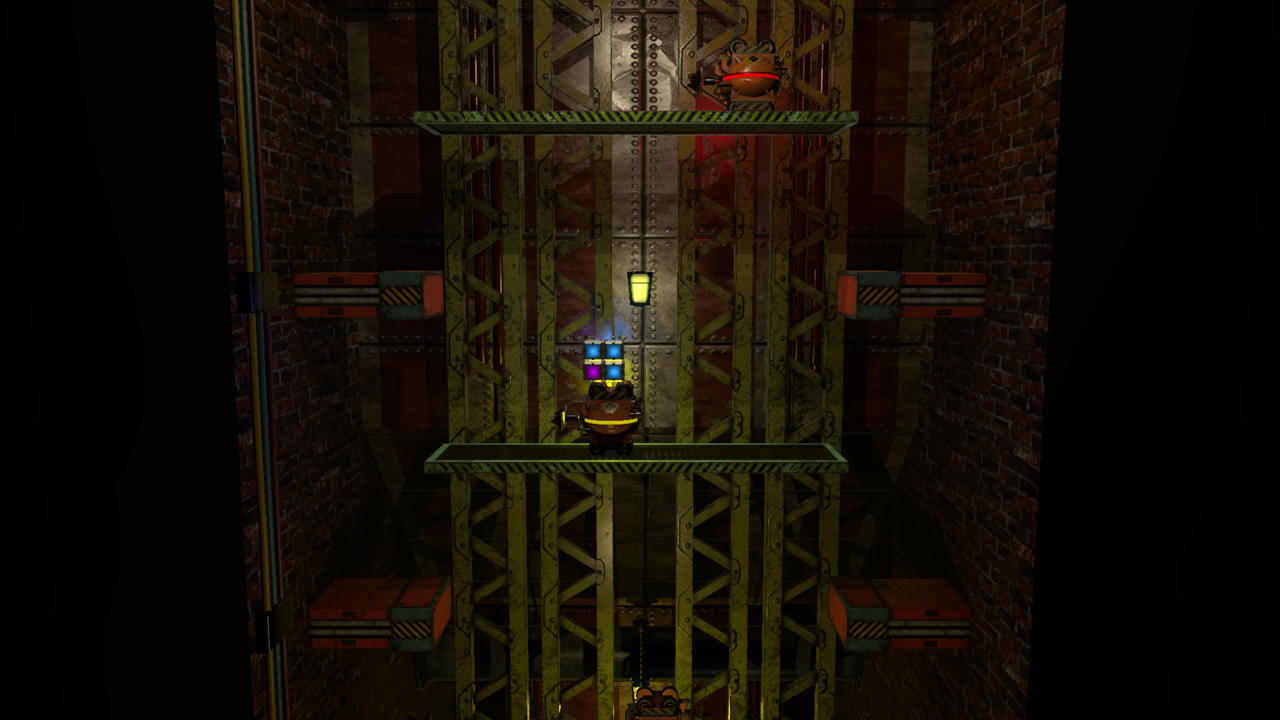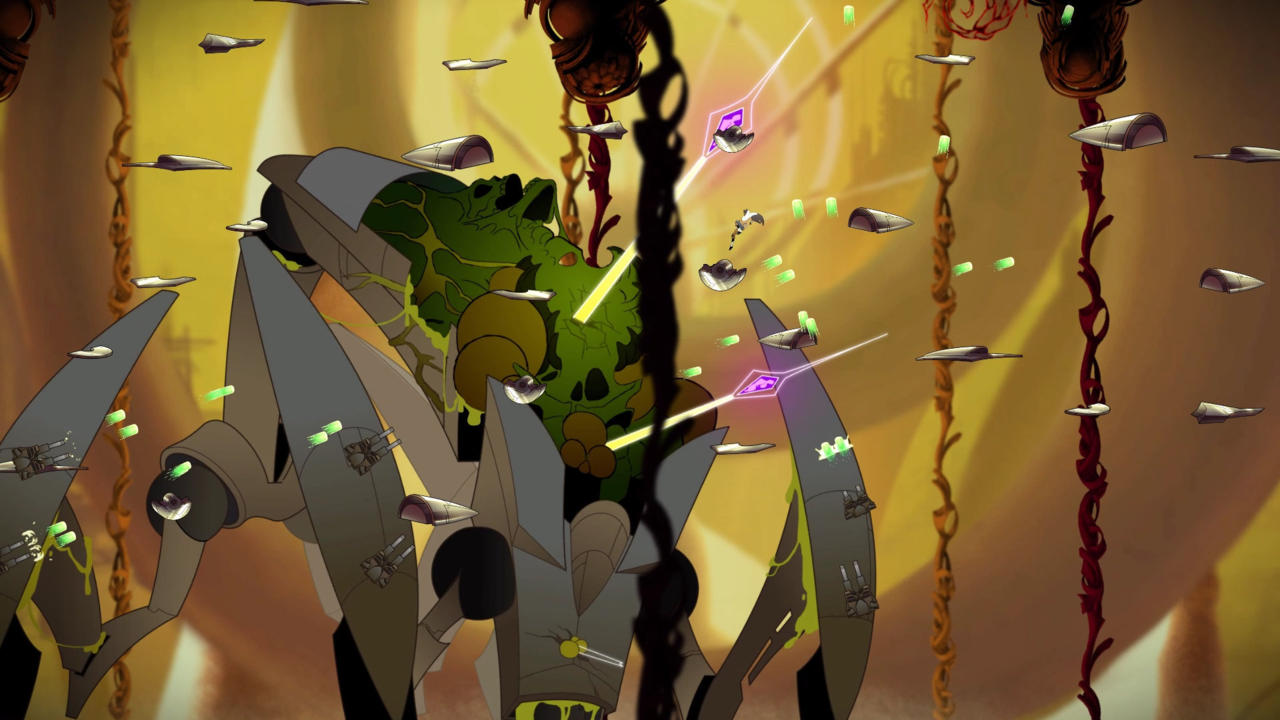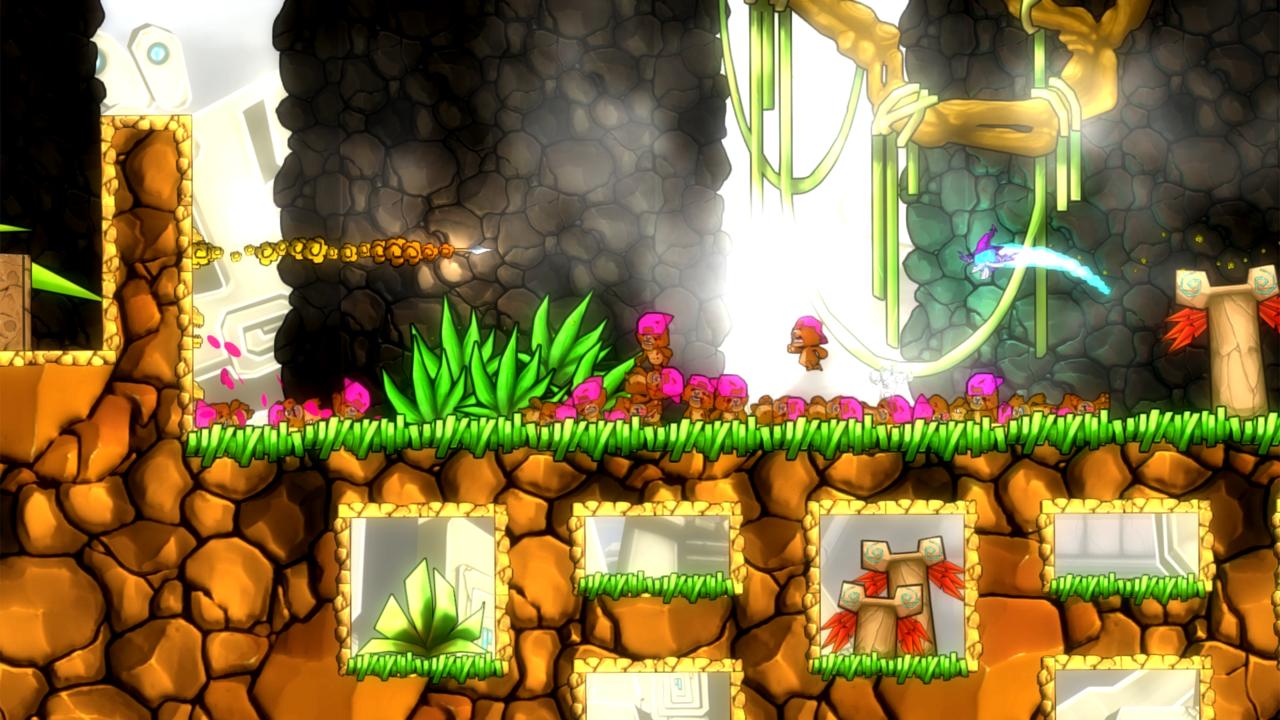11 Cool Games You Might Have Missed At PAX East 2017
GameSpot may receive revenue from affiliate and advertising partnerships for sharing this content and from purchases through links.
PAX East isn't just about playing the latest triple-A game--it's also an opportunity to check out lesser-known games. We got plenty of hands-on time with several indie games during PAX East and picked out our favorites, so whether you're looking for the next challenging roguelike or a crazy platformer, you're sure to find something you'll want to pick up.
Don't miss the rest of our coverage from PAX East 2017, including a gallery of the best PAX East cosplay. For more on indie games, see our roundup of the best indies from GDC 2017.
Dead Cells
Roguelike games can be a blast, but dying and losing all that progress is a bummer. Dead Cells fixes this by mixing the difficulty and death of roguelikes with Metroidvania mechanics. If you die 10 stages in, you can still use certain gear to rush back to the spot where you met your demise. For the speedrunning crowd, teleporters and special doors that lock after a limited time offer even more shortcuts back to your corpse.
If the name reminds you of the Souls franchise, you're not wrong: enemies drop "cells" which serve as a currency for purchasing items and buffing your equipment. This all adds up to a gameplay loop that should ease some of the difficulty you'd expect from a roguelike--but it's still awfully hard.
Eitr
Action-RPG Eitr looks grim as hell. Its combat is bloody, its enemies are terrifying, and its unique take on Norse mythology promises to deliver some deep, dark twists. Thankfully, based on our hands-on time, the game does equip you with just enough tools to beat back the darkness.
Despite the retro aesthetic, Eitr's gameplay feels unmistakably modern, mixing basic slashing with more sophisticated ranged and special abilities, as well as traversal skills like dashes. This makes for encounters that are both challenging and nuanced. There's also a randomized loot drop system and a uniquely brutal progression system: you can choose between small yet permanent character upgrades or stronger perks that disappear forever upon your next death. And yes, you will die. Probably a lot.
If you're a Dark Souls fan looking for something with a slightly different flavor, watch for Eitr to launch on PC and PS4 later this year.
Hand of Fate 2
Much like the original Hand of Fate, Hand of Fate 2 melds a card-based tabletop game with an action game. You'll spend time completing quests, making decisions (do I want to risk my well-being to rescue someone from a fire?), and essentially experiencing a sort of Dungeons & Dragons-style adventure through a tabletop card game format. When it comes time for combat, it isn't done through text or cards, but by transitioning into a third-person action game.
Hands of Fate 2 developer Defiant Development has focused on improving combat. While still fairly simplistic, the Batman: Arkham-inspired action comes in short bursts and now features companions who help you to take on the gangs of enemies you'll face. On its own, the combat might not be enough to carry a game, but the interplay between Hand of Fate 2's two halves remains an intriguing concept.
Toss in character customization to allow you more fully embody your character and a story that pits you against your protagonist from the first game, and Hand of Fate 2 looks to be taking the steps forward that fans have asked for. It's out later this year for PC, PS4, and Xbox One.
Hob
Hob--an exploration-driven third-person platformer from Torchlight creators Runic Games--contains no text or dialogue of any kind; instead, its mysterious, melancholic world tells the story. Massive metallic gears and imposing stone structures mingle with lush green fields to create a desolate yet oddly charming atmosphere, which is further enhanced by the gorgeous cel-shaded art style.
Though your hooded character carries a key-like sword (and must occasionally battle bosses), most of the gameplay revolves around environmental puzzles and precision platforming: activating hidden switches, dragging platforms into position, leaping across a series of precarious ledges--all part and parcel for Hob. You can also uncover secret rooms and collectibles if you stray from the beaten path, and according to the developers, you will eventually learn the secret behind the game's seemingly abandoned world.
Hob is due out later this year on PC and PS4.
Mr. Shifty
At a glance, Mr. Shifty resembles Hotline Miami. That's a fair comparison, since Shifty's goal is to wipe out enemies on each floor of a highrise as he makes his way to the top. They may fall with a few punches, but their shotguns, pistols, and mines are more than enough to take you down--and you can only take a single hit.
Luckily, Mr. Shifty's skills match his name, and you can phase through walls and solid objects to make a quick escape. Fill up a combo meter using standard attacks or improvised weapons like two-by-fours and shattered vases, and you'll even get a moment of slow-mo to dodge that incoming bullet.
Perception
How do you spice up the "girl explores creepy house" subgenre of horror games? Simple: you take away one of her senses. Perception's heroine, Cassie, is blind, which means you must navigate the house via echolocation. Cassie can tap her cane periodically to "see" the room around her, and even tap into a "sixth sense" to ping her current objective. But the more noise you make, the more the ghosts in the house grow aware of your presence. They might not be visible to the naked eye, but those spirits can still kill you, so Cassie will have to hide under beds and behind large objects if they start chasing her down.
Pyre
Unlike Supergiant Games' previous projects Bastion and Transistor, Pyre is--for lack of a better term--a sports game. Though framed by an elaborate high-fantasy narrative, the bulk of Pyre's gameplay pits your trio of redemption-seeking exiles against other teams of three in an unusual cross between dodgeball and keep away.
At the start of each "ritual" (read: match), an orb spawns in the middle of the playfield. Both teams must attempt to grab the orb and carry it to the opposing team's pyre. You can pass the orb among your teammates and even attempt to throw the orb onto the pyre from a distance, but if an opponent moves close enough to the character currently holding the orb, that character is briefly banished from the playfield and the orb is dropped. Each character possesses unique abilities like dashes and ranged attacks, and as you progress through the story, you'll encounter new characters you can potentially add to your trio.
Pyre's approach is certainly unexpected, but it's head-to-head multiplayer could end up being pretty intense. We'll find out for sure later this year.
Refactor
Refactor isn't the only Metroidvania you'll read about on this list, but it is the only one inspired by Tetris. The abilities at your disposal take cues from tetromino shapes. The cube can slam onto switches and bust through walls, and your T-block form can swing around the stage with its grappling hook.
Even the plot is Tetris-inspired: your block is trying to escape a factory where defective puzzle pieces are left to die. And in another twist, the layout of the world can completely change. At certain points, you get a chance to jack into the factory map and rearrange where rooms are positioned. If you need to reach an area directly above you, you can grab a vertical room and snap into place adjacent to you. Most Metroidvanias give you new tools as you progress, but not many let you reshape the entire world.
Sprint Vector
Running like Sonic the Hedgehog in virtual reality sounds like a recipe for motion sickness, but there’s something enticing about Sprint Vector—and it’s not just the leaderboards. The game is entirely played by pumping your arms. You can swing up and down to build speed, fling yourself up ledges to climb walls, and Superman pose to glide forward. Glowing lights make it clear what you can and can’t interact with, so you it’s easy to focus on the track ahead, and constant commentary from the fictional race announcers encourages you to find the fastest route past your opponent. VR provides an opportunity for some crazy rides, and Sprint Vector lets you control the whole ride yourself.
Sundered
Metroidvania-style games are easy to come by in the indie space, but the developers behind Sundered may have found a twist to the tried-and-true formula to grab your attention. The caverns you explore and enemies you encounter differ from playthrough to playthrough. Important rooms will remain the same, but the areas in between are procedurally generated and enemy placement is randomized. Even though you still unlock new powers and tools in the same order, the way you get to them could change. The game also features a gorgeous art-style and combat reminiscent of Super Smash Bros. and Guacamelee.
Super Rude Bear Resurrection
Super Rude Bear Resurrection is a challenging 2D platformer in the mold of Super Meat Boy, but with a unique twist: each of your deaths effectively makes the level easier to complete. This is primarily due to leaving behind a corpse. Your fallen predecessor can render a spike trap safe to step on, give you a boost when making a difficult jump, or block an arrow from being fired at you, among other things.
Conceivably, the entire game can be beaten without the assistance provided by corpses, and narrowly making my way through sections without a death was exhilarating. But much of the fun to be had with Resurrection comes from seeing how stacking up corpses allows you to approach an area differently than you would on your first run through. Combined with interesting boss concepts and a killer soundtrack, this is absolutely one for platforming fans to look out for on PC, PS4, and Xbox One this spring.



